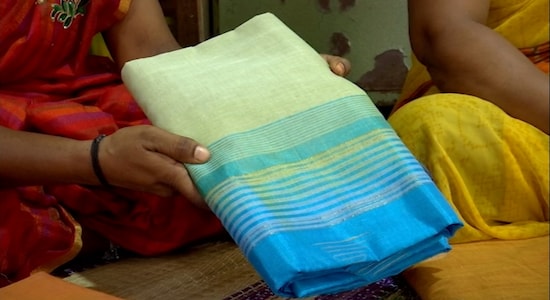
 1 / 9
1 / 9Anakaputhur natural fiber weavers, known for their historic production of natural fiber garments and export to London and the USA, have once again grabbed the limelight. This time, they have woven a "Vettiver saree" (Khas khas) for the Thailand Princess.
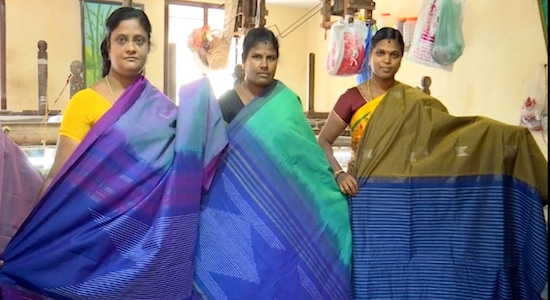
 2 / 9
2 / 9The 7th International Natural Fibre Symposium and Exhibition is being held in the Southeast Asian country of Thailand. The inaugural ceremony was graced by the presence of the country's princess. As a tribute to her, a magnificent khas khas (poppy seeds) saree was meticulously woven over the course of three days by a team of three talented artisans. This exquisite garment is crafted using the fibers and oil extracted from the khas khas roots. The skilled weavers from Anakaputhur have garnered praise and honour as they presented this remarkable saree, dipped in khas khas oil, as a cherished gift to the Thai princess.
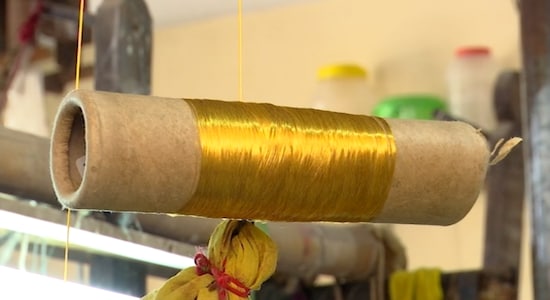
 3 / 9
3 / 9The weaving industry is a source of pride in Kanchipuram, known as the district of lakes. Weaving has remained the primary industry of the district, with traditional methods still being used despite the introduction of new technologies in cloth production. The weavers have steadfastly continued their age-old craft, preserving the traditional art of weaving.
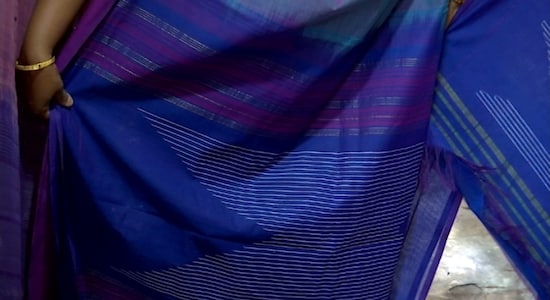
 4 / 9
4 / 9For the past 15 years, the Anakaputhur weavers have been at the forefront of revolutionising the natural fiber weaving industry. Their remarkable journey has led them to produce a wide range of garments using 25 different types of natural fibers. With a warm reception, they have expanded their business not only within Tamil Nadu but also internationally. Currently, they employ 10 handlooms to craft their exquisite line of natural fiber clothes.

 5 / 9
5 / 9During the celebration of National Handloom Day in 2015 at Anna University, Chennai, Prime Minister Modi graced the event with his presence. The Anakaputhur Natural Fiber Weaving Group showcased their craftsmanship by creating a remarkable 'Herbal Shawl', which was proudly worn by the Prime Minister during the function. (Representational Image: PTI)
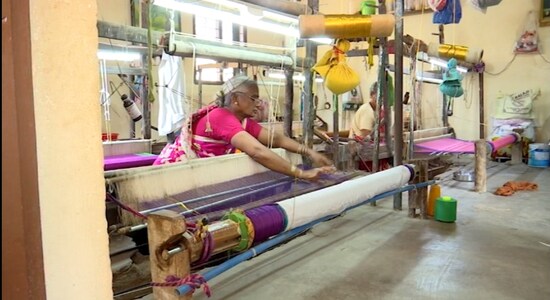
 6 / 9
6 / 9However, alongside their success, the weavers also expressed their concerns and appealed to the Tamil Nadu government for support in enhancing their business and securing their livelihoods. The weavers expressed deep disappointment over the lack of cooperation from both the central and state governments, which has hindered the growth of this once-promising industry. The town of Anakaputhur has long been renowned for its traditional handloom weaving, boasting of over a hundred weaving families. Regrettably, the handloom industry has witnessed a steady decline, with the number of looms decreasing from 5,000 to a mere few.
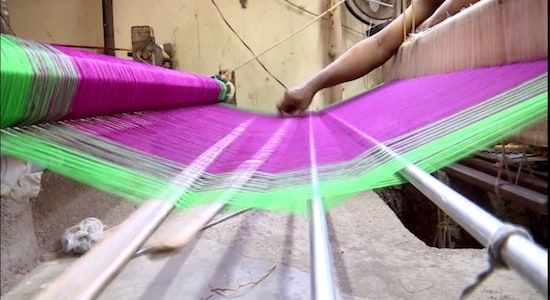
 7 / 9
7 / 9One of the dedicated groups of handloom artisans in the region, led by Shekhar, began operating in small house with a team of fewer than ten individuals. They embarked on their journey by utilising banana fiber and have since expanded their range to include coconut fiber sarees, bamboo fiber sarees, rice cactus sarees, pineapple plant sarees, and Kongura sarees. Extracting fibers from these materials, they meticulously dye and weave them into exquisite sarees. Of particular note is the cotton saree made from banana fiber, which has gained popularity for its exceptional cooling properties, surpassing even traditional cotton yarn sarees in comfort.
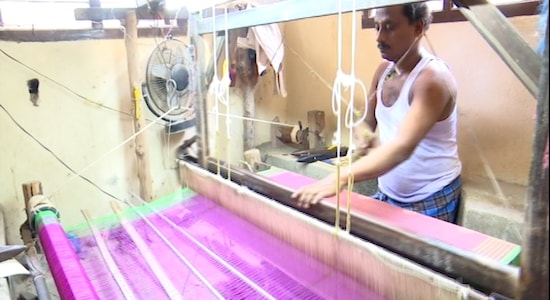
 8 / 9
8 / 9Shekhar expressed their ongoing struggle to establish a Handloom Cluster, primarily hindered by the scarcity of space. Despite persistently appealing to both the central and state governments for the past eight years, their pleas for sufficient space allocation to accommodate their groups have gone unanswered. Shekhar emphasised that such a provision would not only ensure better income for the weavers but also generate employment opportunities for the youth. “We request the governments to lend a helping hand to save the dying handloom industry,” Shekhar said.
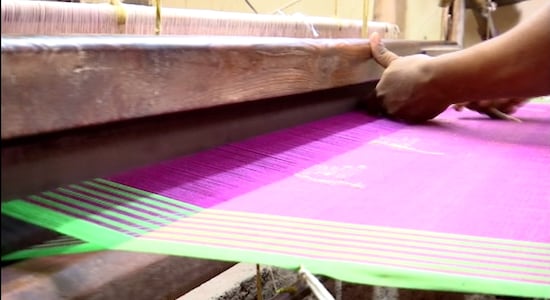
 9 / 9
9 / 9Cotton sarees blended with 10 to 50 percent banana fiber, combined with cotton thread, are available in the market at prices ranging from Rs. 2,000 to Rs. 7,500. Similarly, silk sarees woven with 15 to 50 percent banana fiber integrated into the silk yarn are priced between Rs. 3,500 and Rs. 25,000.

